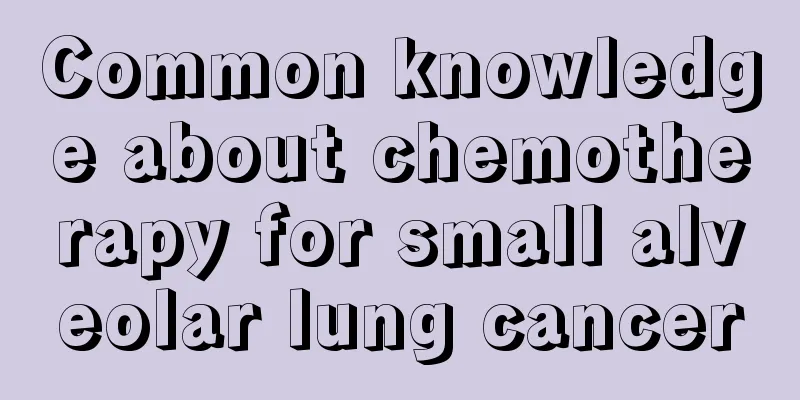Pistachio allergy

|
Patients who are allergic to pistachios must not eat this kind of food to avoid endangering their lives, because patients with inflammatory allergies may die. Most patients, although their condition is not so serious, will develop a lot of urticaria on their skin, and they will feel that their skin becomes very itchy at night. 1. Urticaria It is a skin manifestation of allergy, characterized by paroxysmal skin itching and the appearance of congested wheals. It is mostly caused by allergens (mostly certain foods and additives, inhalants, drugs, microorganisms and parasites, insect toxins, etc.) coming into contact with the patient's skin and mucous membranes and entering the body. Clinically, it is divided into two categories: one is type I allergic urticaria mediated by nonspecific immunoglobulin IgE, and the other is non-allergic urticaria, including physical, cold, heat, solar and cholestatic urticaria. In addition, physical factors, mental factors and systemic diseases can also cause urticaria. Other skin manifestations of allergies may include angioedema, dermatitis, eczema, erythema multiforme, exfoliative dermatitis, etc. Clinical manifestations: Pink wheals of varying sizes suddenly appear on the skin, mostly in round, oval or irregular shapes, and can occur on any part of the body; they are isolated or scattered at first, then gradually expand and merge into patches. Urticaria usually comes and goes quickly, one after another, and new wheals will occur one after another, and may even occur on top of old wheals. In some patients, the gastrointestinal tract may be affected, causing edema of the mucosa in this area, and abdominal pain and diarrhea may occur clinically. If the laryngeal mucosa is affected, breathing difficulties may occur. Severely ill patients may experience symptoms of anaphylactic shock such as palpitations, irritability, nausea and vomiting, difficulty breathing, laryngeal edema, and even low blood pressure. 2. Allergic rhinitis It is mostly the result of the interaction between inhaled allergens and the patient's nasal mucosa. Most patients have allergic constitution and it is hereditary. Clinically, rhinitis can be roughly divided into seasonal rhinitis and perennial rhinitis. The former is mostly caused by inhalation of pollen, while the latter is mostly caused by inhalation of indoor dust, mites, mold, animal hair, dander, and poultry feathers. Clinical manifestations: sudden nasal itching, continuous sneezing (usually more than 5 times) and a large amount of clear watery serous nasal secretions. Each attack of symptoms usually lasts for more than 1 hour and often recurs. 3. Anaphylactic shock It is the most serious allergic reaction. The most common allergen causing this disease is penicillin. Other drugs include beta-lactam antibiotics, streptomycin, procaine, isatis root injection, dextran, iodine-containing contrast agents, etc. In addition, there are also certain insect stings. The incidence of anaphylactic shock in the general population is approximately 0.08%. After the onset of the disease, patients experience widespread and rapid increase in capillary permeability, arteriolar dilation, resulting in a decrease in peripheral blood flow, a decrease in cardiac output and a sharp drop in circulating blood volume, as well as edema of multiple organ and system tissues and smooth muscle spasm. In severe cases, it can be fatal in a very short time. 20% of allergic deaths occur within half an hour of the onset of the allergy. Clinical manifestations: Patients first experience flushing of the skin and mucous membranes, itching all over the body, especially on the palms, numbness of the lips, tongue and extremities, followed by various rashes, mostly in the form of large wheals, and large areas of dermal and subcutaneous angioedema. Blood pressure drops sharply, with systolic pressure dropping below 80 mmHg and pulse pressure within 20 mmHg. In severe cases, circulatory failure may occur, manifested by confusion, cold sweat, pale complexion, cold limbs, and thin pulse. If the disease is not controlled in time, cardiac arrest and even death may occur within a short period of time in a few cases. |
>>: What are the benefits of sweating
Recommend
What to do if you get pregnant with bladder cancer
Can bladder cancer patients have children? Expert...
How to treat bulging eyes
Some people's eyes look watery, big and very ...
Early symptoms of lung cancer in a 70-year-old man
The early symptoms of lung cancer may be relative...
What are the symptoms of prostate cancer
Symptoms of prostate cancer include frequent and ...
Three main symptoms of teacher burnout
Teacher is a common profession in society, and te...
How to reduce swelling in ears
If the ear suddenly becomes red and swollen when ...
Digital rectal examination is very important for the diagnosis of early prostate cancer
As the incidence of prostate cancer has been incr...
What does the DTP vaccine prevent? This is what the DTP vaccine is all about.
Parents who have given birth to babies know that ...
What toothpaste should I use for dentures
We all know that diseases come from the mouth. Te...
What should patients with prostate cancer eat
Most patients with prostate cancer are middle-age...
What are the diagnostic methods for melanoma
Melanoma is a tumor disease that is extremely har...
What should I do if I lose hair after washing it? Wash your hair correctly to reduce hair loss
Although we wash our hair frequently, not everyon...
Is it okay to wash your hair once a day
The weather is hot in summer and people sweat a l...
Which department should I go to if I have lymphoma
When a patient has lymphoma in his bile duct, he ...
Heart beats too fast while running
When running, the body's demand for oxygen wi...









